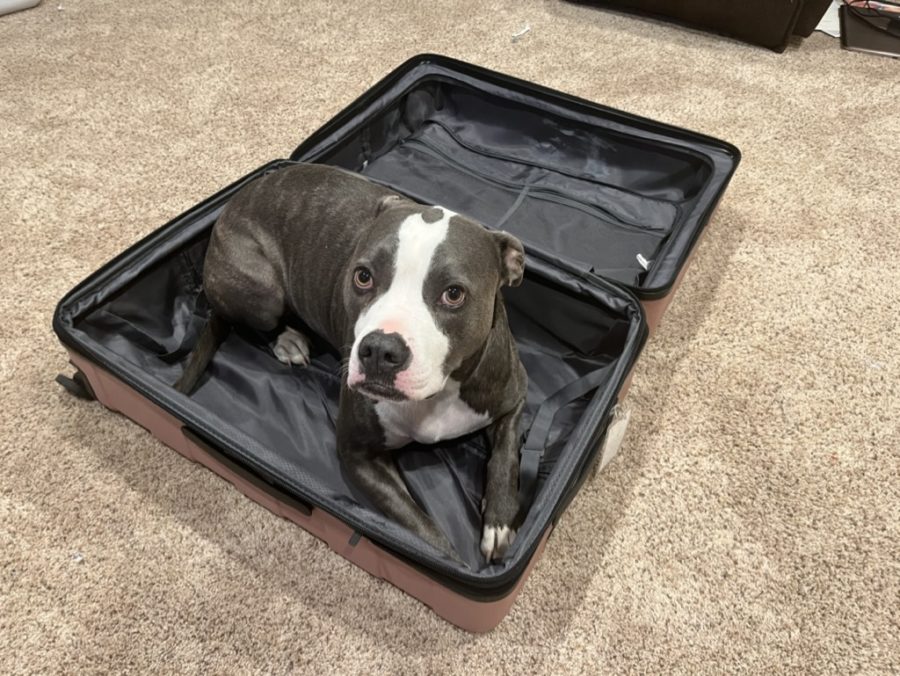Whenever we leave, our dogs may destroy couches and steal shoes. They get violently and disgustingly upset – similar to toddlers dropping their ice cream. How do you go off to college and leave your dog in the dust? Not only do you miss them, but they also miss you too.
“When I left, [my dog] honestly had a whole attitude towards me and my brother every time we would come back home for break,” says Skyline graduate and former Post News Editor Sammi Perkins (‘22). “She was definitely furious when we left.”
According to Medical Daily, dogs often bond to humans similarly as babies bond to their caregivers, a bond known as the “secure base effect.” Often, the kids in a household are tasked with many of their dogs’ housekeeping duties, causing their pet to bond more. Once these kids graduate and start to move on with their lives, dogs get left behind, feeling blue.
A 2016 study by Melanie D.G. Kaplan, published by The Washingtonian, concluded that when a child leaves for college, a dog is much less active and happy because they lose their secure base. Dogs in the study had to manipulate toys to get a treat. When their owner was there, they were much more active than when their owner was absent.
When a graduate abandons a pet on the walk of life, that pet mourns their absence. To them it feels as if they’ve left for good. “When my brother left, there was an immediate change in my dogs’ behavior,” says Chloe Majorprice (‘25). “Our dogs were instantly less active, and seemed much more sad.”
Every visit back home shouldn’t feel like a rise from the dead for dogs, so how do college students move on without hurting their pets? There are two steps every family with a dog should take before their best friend ditches them to get a higher education.
One, make sure every soon-to-be grad is relieved of any pet-related housekeeping duties before they go to college. If the animal and child are roommates, it’s time for the pet to move out.
Two, replace the bond a pet will be missing. Other family members should try teaching them new tricks or play new games with them, allowing them to attach themselves to a new person. “Even though my sister hasn’t graduated yet, I’ve been trying to help my dogs become unattached from her,” says Sara Mitchell (Milan High school ‘26). “It seems to be working, and they are more comfortable with her absence. Hopefully it will work when she actually leaves.”
How do graduates cope with missing their dogs once we are away? Our beloved little creatures aren’t the only ones affected by this change. We are also affected, and we need to learn how to care for our mental health once our dogs are no longer there.
“I have a two year old golden retriever, his name is Obi and he’s the literal light of my life,” says Katarina Bauer (‘23). “He’s the sweetest dog, and I think that leaving him for college will change my daily life so much. Whenever I’m having a hard day and get to come home and see him, he instantly makes me feel so much better. Not having that will definitely make things harder.”
To soften the blow of missing a best buddy a little, college students should call or FaceTime the dog back at home. They can also tell friends all about their pet back at home and try to stay updated on a dog’s life: how many squirrels they chased or toys they destroyed this week. Going to college or moving away from home is a massive leap in life, and it’s important for students to care for themselves and the pets they leave behind. Dogs helped many get through high school. Now it’s time to return the favor.







